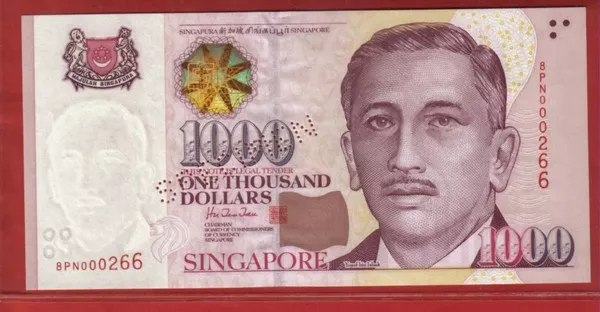Singapore is a small but prosperous island city-state in Southeast Asia with a population of about 5.7 million people. It has been recognized for its strong economy, political stability, and high standard of living. One of the key indicators of its economic strength is the value of its currency, the Singapore dollar (SGD). In this article, we will explore how strong is Singapore currency.
Historical Background:
The Singapore dollar was first introduced in 1967, replacing the Malaysian dollar after Singapore gained independence from Malaysia. At that time, the exchange rate was set at SGD 1 to MYR 1. In 1973, the Singapore government decided to link the value of the SGD to a basket of currencies instead of pegging it to the US dollar. This move was made to reduce Singapore’s dependence on the US economy and to ensure more stable exchange rates.
Factors Affecting the Strength of the Singapore Dollar:
1. Economic Growth: The strength of a country’s economy is one of the most important factors that determine the value of its currency. Singapore has experienced sustained economic growth over the years, with an average annual growth rate of around 5% since independence. This has contributed to the appreciation of the SGD against other currencies.
2. Trade Balance: Singapore is a global hub for trade, with a highly competitive export-driven economy. Its favorable balance of trade contributes to the strength of the SGD. The country consistently runs a trade surplus, which means it exports more than it imports. This leads to an inflow of foreign currency, which increases demand for the SGD.
3. Interest Rates: Another factor affecting the strength of a currency is interest rates. Higher interest rates attract foreign investors who want to earn higher returns on their investments. Singapore’s central bank, the Monetary Authority of Singapore, maintains a relatively high interest rate compared to other developed countries, which makes the SGD more attractive to investors.
4. Political Stability: Political stability is also an important factor in determining the strength of a currency. Singapore is known for its stable political environment, which has attracted foreign investment and helped to maintain the strength of the SGD.
5. Foreign Reserves: Singapore has one of the largest foreign reserves in the world, currently standing at over SGD 400 billion. This provides a buffer against external shocks and helps to maintain the stability of the SGD.
Strength of the Singapore Dollar:
The strength of the SGD can be measured in different ways, such as its exchange rate against other currencies or its purchasing power parity (PPP). Exchange rates are affected by many factors, such as economic conditions, interest rates, and political stability. As of June 2023, the SGD was trading at around SGD 1.32 to the US dollar, which is considered strong compared to other currencies in the region.
Purchasing power parity (PPP) is another way to measure the strength of a currency. PPP compares the prices of goods and services in different countries using a common currency, usually the US dollar. According to the International Monetary Fund (IMF), Singapore has one of the highest PPP-adjusted GDP per capita in the world, which indicates the strength of its currency.
Impact on the Economy:
A strong currency has both positive and negative effects on the economy. On the positive side, it makes imports cheaper, which can help to control inflation. It also makes it easier for businesses to invest abroad and expand their operations globally. A strong currency can also boost consumer confidence and encourage spending, as people feel more financially secure.
On the negative side, a strong currency can hurt export-oriented industries by making their products more expensive in foreign markets. This can lead to a decline in exports and a loss of competitiveness. A strong currency can also lead to a shrinking current account surplus, as imports become cheaper and domestic consumers shift their spending to cheaper imported goods.
Conclusion:
The strength of the Singapore dollar is a reflection of the country’s strong economic fundamentals, political stability, and sound monetary policies. It has played a significant role in making Singapore a global financial hub and attracting foreign investment. However, a strong currency also has its drawbacks, such as reduced competitiveness in export-oriented industries. Overall, the Singapore government has managed to strike a balance between maintaining a strong currency and promoting economic growth.


